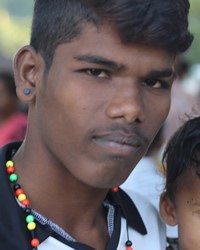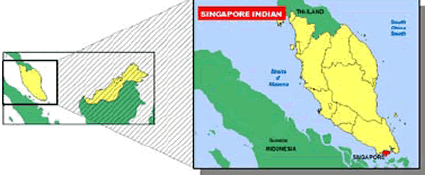The majority of Indian migrant workers living in Singapore come from Tamil Nadu villages in southern India. These Indian migrant workers are scattered throughout Singapore in approximately three hundred work sites. Many workers are educated and literate, while others are illiterate. Those who are educated have received a secondary to a university level education. Most of the Indian migrant workers are married and have left their families behind to seek employment opportunities since there is a lack of job opportunities in India. They come with the promise of employment and are willing to make this sacrifice with an expectation of sufficient earnings to support their family back home. The vast majority of Indian migrant workers are male. However, there is also evidence of illegal immigration of Indian women to Singapore in the capacity of domestic help.
Life in Singapore is tough for migrant workers. They generally work six to seven days a week under the hot sun in risky and sometimes life threatening situations. On most Friday and Saturday nights in Singapore's Little India neighborhood male workers meet on their evenings off work. Hundreds of workers come together along Serangoon Avenue to socialize, eat and phone home on special calling booths late into the night.
Migrant workers cannot get sick or they can receive a pay cut or not receive overtime wages if they miss work. Some workers are not able to settle their loans during their two-year contract and return to India in debt to their agent.
Due to hard work, pressure, loan repayment, new-found freedom or loneliness, many migrant workers will resort to alcoholism, prostitution, and gambling.
Some migrant workers live in well-built flats, but a majority are poorly housed and live in small shacks or containers. Migrant workers can be exploited by their employers who take advantage of loopholes in the legal system. Most Indian workers earn a low income. Work permits are only valid for two years and it is not guaranteed that their permit will be renewed. Some workers in shipyards can go without work for several months.
Most of the Indian migrants adhere to Hinduism. A few of them embrace Islam and Christianity. Some major religious sites of the Hindus are Kaliamman Temple, Sri Srinivasa Perumal Temple and Chettiar Temple. The annual Thaipusam festival is a unique public event that sees Hindu devotees trek barefoot through several downtown Singapore streets, with a peacock-feather decorated structure, called a kavadi, mounted over their head. This Thaipusam processional goes all day long and is a festival of thanksgiving.
Most Indian migrants might state their problems as over-worked, exploited, lonely or overlooked by Singaporeans. They need a day off every week, better medical and dental care, safe working environment, better housing and adequate wages. Pray that more believers in Singapore will take an interest in migrant workers. Pray for more of those who will love them in Christ and are willing to care for the personal needs of these workers. Several businesses have responded by addressing the medical and dental needs of some of these workers. Pray that this might continue and grow. Pray for believers to have a burden to help people who are going through these crises in their lives.
Pray for deliverance from the fear that hinders God's blessing from multiplying and blessing families and communities in this people group.
Pray for God's blessing on the leaders in this people group, along with their families, and for their communities to welcome and enjoy God's blessing.
Pray for the Lord to multiply the reception and influence of his word among this people group, leading them to love him with their whole being.
Pray or God's blessing, strengthening, and healing of families and communities within this people group through the abundant life Jesus offers to all people who call on his name.
Scripture Prayers for the Malayali in Singapore.
Southeast Asia Link, SEALINK, Copyrighted © Used with permission.
| Profile Source: Joshua Project |














